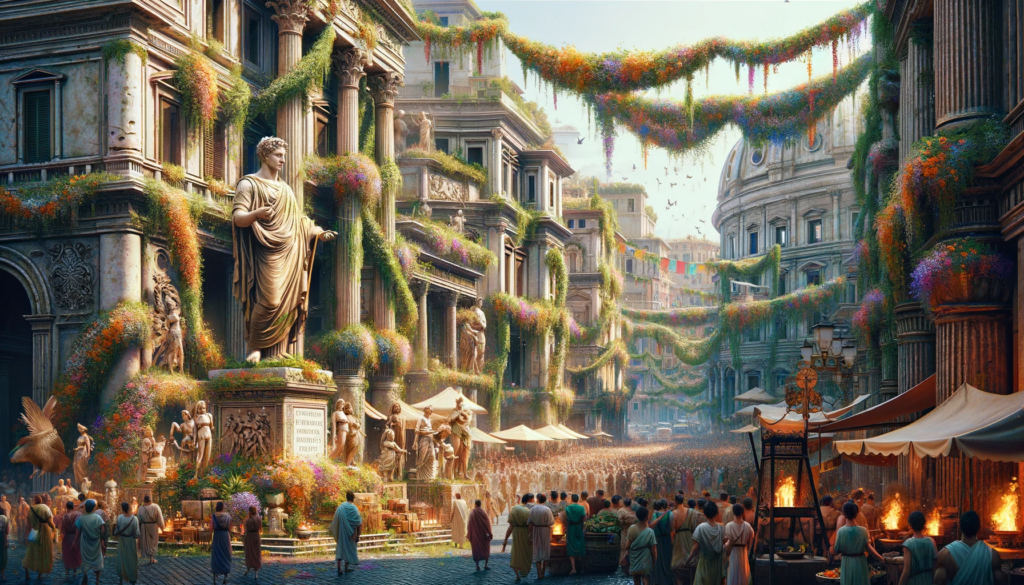Public Holidays: A Historical Perspective and Global Observance
Public holidays are an integral part of societies worldwide, providing a break from routine and an opportunity for communities to come together and celebrate. These holidays hold cultural, historical, and religious significance, reflecting the values and traditions of a nation or region. To understand the origins and significance of public holidays, we must delve into their history, tracing their roots back to the Roman Empire and exploring the most common public holidays observed around the world today.
World Holidays auf einer größeren Karte anzeigen
The Roman Empire and the Origins of Public Holidays
The concept of public holidays can be traced back to the Roman Empire, where festivals and celebrations played a crucial role in the social and religious life of the people. The Romans had numerous public holidays, known as “feriae,” which were dedicated to various gods and goddesses. These holidays were marked by feasting, games, and religious ceremonies, providing an opportunity for the community to come together and honor their deities.
One of the most famous Roman public holidays was Saturnalia, a week-long festival held in December to honor the god Saturn. During Saturnalia, social norms were temporarily suspended, and people engaged in merriment, gift-giving, and feasting. This festival served as a precursor to modern-day Christmas celebrations.

Evolution of Public Holidays
As the Roman Empire declined and various civilizations rose and fell, the concept of public holidays evolved and adapted to the changing times. With the spread of Christianity, religious holidays gained prominence, and many pagan festivals were assimilated into the Christian calendar.
In the Middle Ages, the Catholic Church played a significant role in shaping public holidays. Feast days dedicated to saints and religious events were observed throughout Europe. These holidays provided an opportunity for the faithful to attend religious services, participate in processions, and engage in acts of charity.
During the Renaissance and Enlightenment periods, the influence of the Church waned, and secular holidays began to emerge. These holidays were often tied to significant historical events or national celebrations, fostering a sense of patriotism and unity among the people.
Common Public Holidays Around the World
While public holidays vary across different countries and cultures, some observances are widely celebrated worldwide. Here are some of the most common public holidays:
- New Year’s Day: Celebrated on January 1st, this holiday marks the beginning of the Gregorian calendar. It is a time for reflection, resolutions, and often includes festive gatherings and fireworks displays.
- Easter: A Christian holiday commemorating the resurrection of Jesus Christ, Easter is observed on a Sunday between late March and late April. It is a time of religious services, family gatherings, and Easter egg hunts.
- Independence Day: Many countries celebrate their independence from colonial rule with a national holiday. Examples include the Fourth of July in the United States and Bastille Day in France.
- Christmas: Celebrated on December 25th, Christmas is a Christian holiday commemorating the birth of Jesus Christ. It is a time for religious services, gift-giving, and spending time with loved ones.
- Labor Day: Observed on May 1st in many countries, Labor Day honors the contributions of workers and the labor movement. It often includes parades, rallies, and demonstrations advocating for workers’ rights.
- Thanksgiving: Celebrated in various forms in different countries, Thanksgiving is a time to express gratitude for the blessings of the year. It often involves a festive meal shared with family and friends.
These are just a few examples of the many public holidays celebrated worldwide. Each country has its unique set of holidays, reflecting its history, culture, and religious traditions.
Conclusion
Public holidays have a rich history that dates back to the Roman Empire. They have evolved over time, incorporating religious, historical, and cultural elements. These holidays provide an opportunity for communities to come together, celebrate, and reflect on shared values and traditions. While specific public holidays may vary across different countries,
